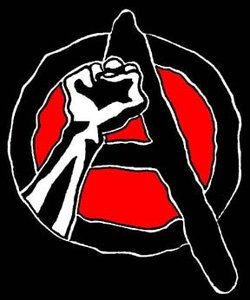 “[A] feminist perspective on the commons is important because it begins with the realization that, as the primary subjects of reproductive work, historically and in our time, women have depended on access to communal natural resources more than men and have been most penalized by their privatization and most committed to their defense.” - Silvia Federici, “Feminism and the Politics of the Commons” “If Jesus of Nazareth, the Christ of God, cannot be an option for Gays and Lesbians, then he cannot be an option.” - M. Shawn Copeland, “Enfleshing Freedom: Body, Race, and Being” If my Facebook wall is any indication, both the Christian Left and the environmental movement are practically glowing with enthusiasm for Pope Francis’s recent encyclical, Laudato Si’: On Care for Our Common Home. Quotes from it are ubiquitous, faith leaders are instructing their followers to read it, and even secular environmentalists are convinced that it is one of the most important documents in recent memory. 350.org celebrated the encyclical, saying that it “reinforces the tectonic shift that is happening, we simply cannot continue to treat the Earth as a tool for exploitation.” Even the significantly more left-wing official page of Javier Sethness-Castro’s book Imperiled Life: Revolution Against Climate Catastrophe has been posting excerpts.
Comments
 In Tell Us Our Names: Story Theology from an Asian Perspective, C.S. Song turns on its head pre-Communist era missionaries’ complaints against some Chinese converts being more interested in feeding their stomachs than their souls. The hungry suspects were accused of being “rice Christians”. He writes that, “we celebrate Christ’s divine presence in the eucharist… [because] in Christ the divine future,” a Kin-dom of God wherein all stomachs will be fed, “becomes the human present.” He writes of the hungry suspects: Rice determined their present and their future. Rice brings a concrete content to all talk about the future, about the world to come, and about the kingdom of God. For those who subsist on rice, can there be a future without rice? Can there be a world to come where they must struggle again for rice? . . . Understanding rice in this way, Christians in China should have been proud to be “rice Christians.” They should have represented this kind of “rice Christianity” to their rice-hungry compatriots. Preachers should have preached “rice sermons” to their famished audiences… theology must serve the God of the present- a God whose pockets are full of rice.1 12/26/2011 Call: Must I Be Anarchist?
 (Or, Why Are All the Anarchists Sitting Together in the Cafeteria?) 1 Editor’s Note: This piece is part one of a series of call and response between Amaryah Armstrong and Nekeisha Alexis-Baker as they consider what possibilities Christian anarchy can provide for marginalized peoples. The conversation grows out of friendship and mutual respect for each other, and from our commitments to living lives of liberation. We aim for to be an ongoing dialogue that builds on each call and response. As a result, we strongly encourage you to begin at the beginning and follow along from there. You can read Nekeisha’s response here. I must confess, I simply don’t know what to do with Christian anarchists. I am anti-domination, anti-capitalism, critical of technology, more than a little suspicious of the nation-state, and all about my citizenship being in heaven and thus having a commitment to radical politics on earth. But still, something about “Christian anarchists” just doesn’t sit well with me. It could be the irony of Christian anarchy being anti-domination and yet being predicated on domination by White men. But this is no different from other Christian identified radical groups. Exclusion is a practice we all participate in. Perhaps it is that I have yet to see or read or participate in sustained Christian anarchist discussions of White supremacy, patriarchy, and heteronormativity that go beyond the niceties of anti-racism/sexism/homophobia 101 training. Or maybe it is because explications of why anarchy is a valuable way to dismantle these systems of evil never seems to offer anything radical feminist, black, and queer Christian critiques have not already begun to deal with.  “Wives submit to your husbands.” Growing up, this seemed to be one of the least understood statements in the bible, right after women being admonished to be silent in church and to wear head-coverings when praying, of course. Bringing up these verses in my relatively modern, evangelical mega-church always produced vague responses and confused expressions. Usually, with a little bit of embarrassment, there was some basic acceptance that men just have to be in charge, maybe because men’s maleness somehow represents God better (that’s why the priests were always male right?), or because, in spite of all anthropological research showing the contrary, men just really are better at being in charge and women really do kind of just want to have and nurture babies (but not really of course… I mean women CEO’s are ok), or maybe it is just an arbitrary command and we follow it because God tells us to… That statement is usually made with a bit more confidence, and garners more respect from me, but I think that all these explanations represent a fundamental misunderstanding of what Paul is saying in these verses. It is often thought that Paul is simply reinforcing the power structures and gender roles that have existed since the rise of stratification and empires, that he is telling rebellious women to remain in their place. Really what Paul is doing though, is encouraging a radical subordination that reflects Christ nature and helps them be a better witness to that nature, in their society. In general, we don’t seem to get that. It seems people think about this issue in one of these ways: A) people still view it as God’s dictation on who should be in charge (how power is distributed in God’s kingdom, which is ultimately oppressive to women), B) people don’t know how to view it, so they uncomfortably water it down basically saying that they think women are equal in value but men should still have most of the power (or maybe they just don’t really know what they mean), or C) they believe men and women should be fully equal, but that Christian women are not yet free or equal in our society so they should fight for that and try to attain it (men should help too, but can’t be counted on because they benefit from the status quo). All of these views completely ignore the ethic of submission and subordination which is proclaimed in the life of Christ and Paul’s writings. |
Disclaimer
The viewpoints expressed in each reader-submitted article are the authors own, and not an “official Jesus Radicals” position. For more on our editorial policies, visit our submissions page. If you want to contact an author or you have questions, suggestions, or concerns, please contact us. CategoriesAll Accountability Advent Anarchism Animal Liberation Anthropocentrism Appropriation Biblical Exegesis Book Reviews Bread Capitalism Catholic Worker Christmas Civilization Community Complicity Confessing Cultural Hegemony Decolonization Direct Action Easter Economics Feminism Heteropatriarchy Immigration Imperialism Intersectionality Jesus Justice Lent Liberation Theology Love Mutual Liberation Nation-state Nonviolence Occupy Othering Pacifisim Peace Pedagogies Of Liberation Police Privilege Property Queer Racism Resistance Resurrection Sexuality Solidarity Speciesism Spiritual Practices Technology Temptation Veganism Violence War What We're Reading On . . . White Supremacy Zionism ContributorsNekeisha Alayna Alexis
Amaryah Armstrong Autumn Brown HH Brownsmith Jarrod Cochran Chelsea Collonge Keith Hebden Ric Hudgens Liza Minno Bloom Jocelyn Perry Eda Ruhiye Uca Joanna Shenk Nichola Torbett Mark VanSteenwyk Gregory Williams Archives
October 2017
|
Search by typing & pressing enter

 RSS Feed
RSS Feed